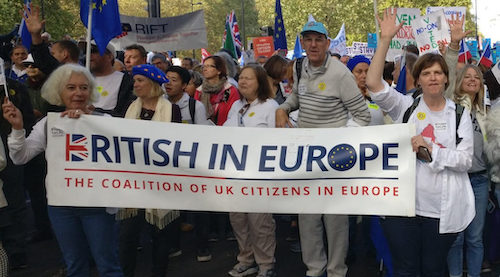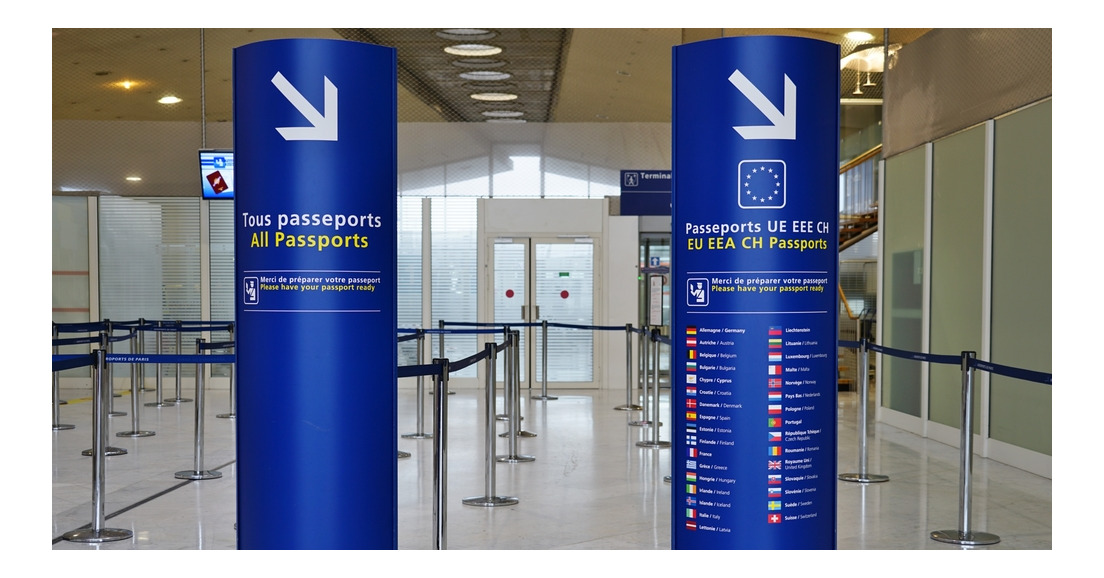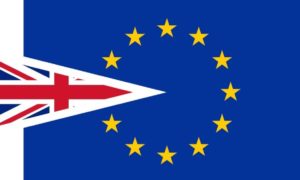(Editor’s note: This post about post-Brexit rules for British citizens traveling in and out of the Schengen area was first posted on the British in Europe website. It’s reposted with permission. You can donate to the group here.)
This is a question that has come up many times over the last months: after the end of the transition period: “How do I come back into my host country (or another Schengen country) after travelling to the United Kingdom or to another non-Schengen country?”
As part of its Brexit Readiness preparations, the European Commission has now published details of exactly how UK nationals – those who are covered by the Withdrawal Agreement (WA) and those who are not – should be treated when they enter or leave the Schengen area from 1 January 2021. In this article we summarise the most important points.
You are resident in your host country and are covered by the Withdrawal Agreement_
- When you enter the Schengen area you will no longer be able to use E-gates where these exist, as EU law currently reserves their use to those who hold an EU, EEA or Swiss passport.
- Like all third country nationals, you will be subject to the entry conditions of the Schengen Border code, which means that checks will be made both at entry and exit, including against national and EU databases.
- As a beneficiary of the WA, you won’t be asked to verify the purpose or length of your stay or to prove that you have sufficient means of subsistence, and your passport won’t be stamped – but you’ll have to produce evidence that you are indeed covered by the WA. See below for more about this.
- When the new Entry Exit System (EES) and the European Travel Authorisation and Information System (ETIAS) come in during 2022 (see below for more details), as a WA beneficiary you will be exempt from these as you have an ongoing right to reside in your host country.
Proving at the border that you’re covered by the Withdrawal Agreement
1. If you live in a country that has adopted a constitutive scheme
Your passport will not be stamped if:
- you have a residence document issued under the WA; or
- you hold and present at the border a certificate of application for your new residence status issued by your host country; or
- if you haven’t yet applied for your new residence status or you don’t have or present a certificate of application but
- you are still within the application deadline set by your host country, and
- you have evidence that you exercised free movement rights in your host country before the end of the transition period. This might be a former residence card issued to you as an EU citizen; if you live in a country where registration was previously not required (eg France), you should carry some form of proof that you were resident before 31 December 2020.
Check the table below to find out the application deadline in your country.
After the application deadline in your country has passed, you must present either a residence card issued under the WA or a certificate of application if you have not yet received your new card. No other evidence will be accepted as proof of residence after the application deadline has passed (not even a former EU residence card).
Important: if you don’t produce the required evidence you will not be treated as a resident and your passport will be stamped. In theory at least this starts the 90 day clock ticking.
Constitutive countries and their current application deadlines
| Belgium | 31 December 2021 |
| Denmark | 31 December 2021 |
| France | 30 June 2021 |
| Latvia | 30 June 2021 |
| Luxembourg | 30 June 2021 |
| Hungary | 31 December 2021 |
| Malta | 30 June 2021 |
| The Netherlands | 30 June 2021 |
| Austria | 31 December 2021 |
| Romania | 31 December 2021 |
| Slovenia | 31 December 2021 |
| Finland | 30 September 2021 |
| Sweden | 30 September 2021 |
2. If you live in a country that has adopted a declaratory scheme
Countries not shown on the list above have adopted a declaratory scheme. In these countries you have the right to request a new residence document that has been issued under the WA, but you are not obliged to do so (although some declaratory countries are treating the new documents as compulsory).
Your passport should not be stamped if:
- you have a new residence document issued under the WA; or
- you produce evidence that you exercised free movement rights in your host country before the end of the transition period. A registration certificate or card or residence card issued to you under EU rules will suffice for this, but only until its expiry date.
You are not resident or only partially resident in an EU country and are not covered by the Withdrawal Agreement:
- you will be able to stay in the Schengen zone for a maximum of 90 days in 180 days, and no visa will be necessary during this period.
- the 90-day period is a rolling period, calculated backwards from each day of your stay; it applies to your stay in the entire Schengen zone, not just to a single country in it. A useful tool to calculate the number of days is this calculator available on the website of the European Commission. Once you’ve been absent from the Schengen zone for 90 consecutive days, the clock is reset and you start a new period.
- when you arrive at the border of the Schengen zone from the UK or another non-Schengen country, you will be subject to entry controls. You will need to be able to show:
- a valid passport which is less than 10 years old and has at least 6 months validity left;
- documents that prove the purpose and conditions of your stay: for example, tickets for further journeys and for return travel plus accommodation reservation or proof that you are travelling to a second home;
- evidence that you have ‘sufficient means of subsistence’ for the duration and purpose of your stay.
- You will be able to enter without a visa if you are visiting as a tourist, to visit friends or family, to attend cultural or sports events or exchanges, business meetings, for journalistic or media purposes, medical treatment, for short-term studies or training (for example, a short language course of less than 3 months would be covered by this provision, whereas a longer course such as a degree course, or any course of over 3 months, would not) and any similar activities.
- If you are coming to work in the Schengen zone, even for less than 90 days, you are not covered by the visa-free rules and will need a visa from the country where you intend to work.
- Once you’ve been granted entry at the border, your passport will be stamped. It will be stamped again on your exit and your time spent within the Schengen zone will be verified.
The Entry Exit System (EES) and European Travel Authorisation and Information System (ETIAS)
- These new systems will be introduced in 2022 for travel to the Schengen zone (those covered by the WA will be exempt from both).
- The EES replaces the current method of manually stamping passports with an electronic record of entries and exits. The date, time and place of your entry into the Schengen zone will be electronically noted, along with biometric information. This data will be stored for 5 years. You will be told the maximum authorised length of stay and (if necessary) notified of any overstay.
- The ETIAS travel authorisation will be a mandatory pre-condition for entry to the Schengen States for non-EU citizens who are visa-exempt – so for UK citizens. You will have to apply for this on the website or app before travelling and pay a fee of 7 euros. It will be checked together with the travel documents by the border guards when crossing the EU border.

About British in Europe:
British in Europe is a coalition of grassroots citizens’ organisations and the largest grouping of UK citizens in the EU. It was founded in early 2017 to give UK citizens living, working and studying across the EU a voice in the Brexit negotiations.
They are the organisation of reference on citizens’ rights for UK nationals in the EU.
See Dispatches’ Brexit archive here.





























